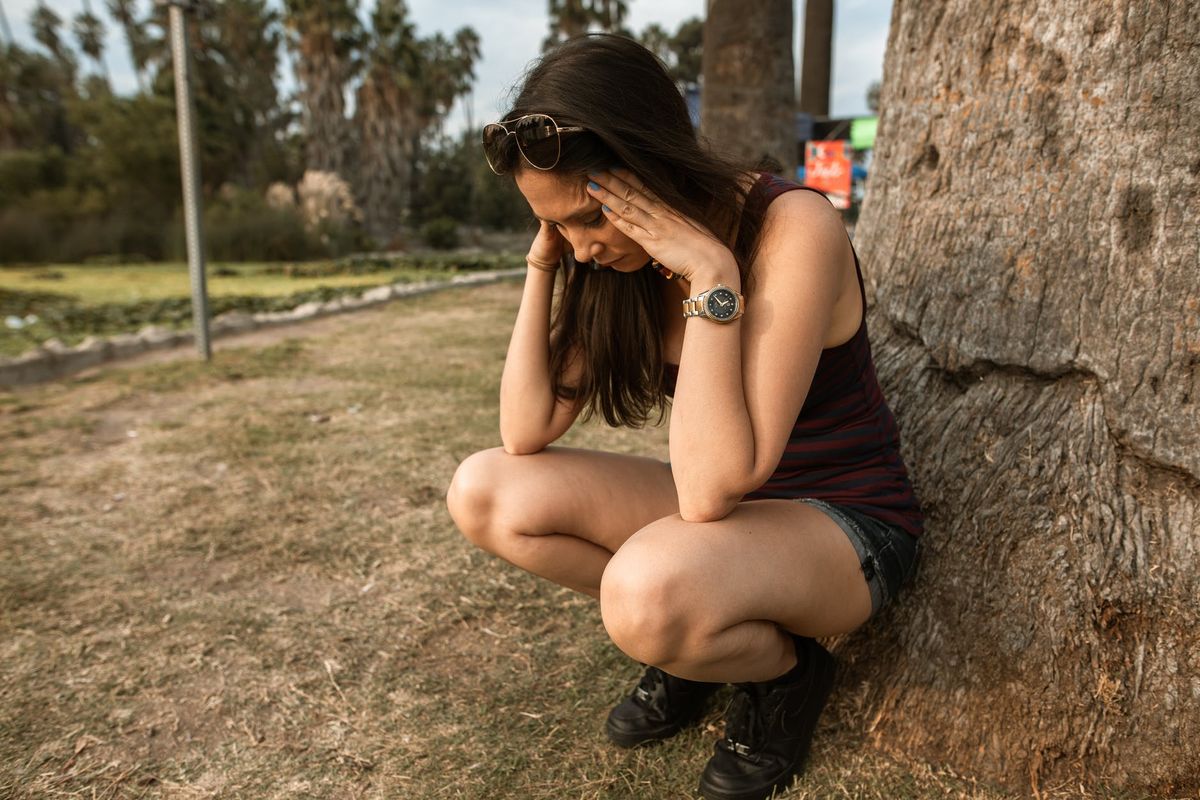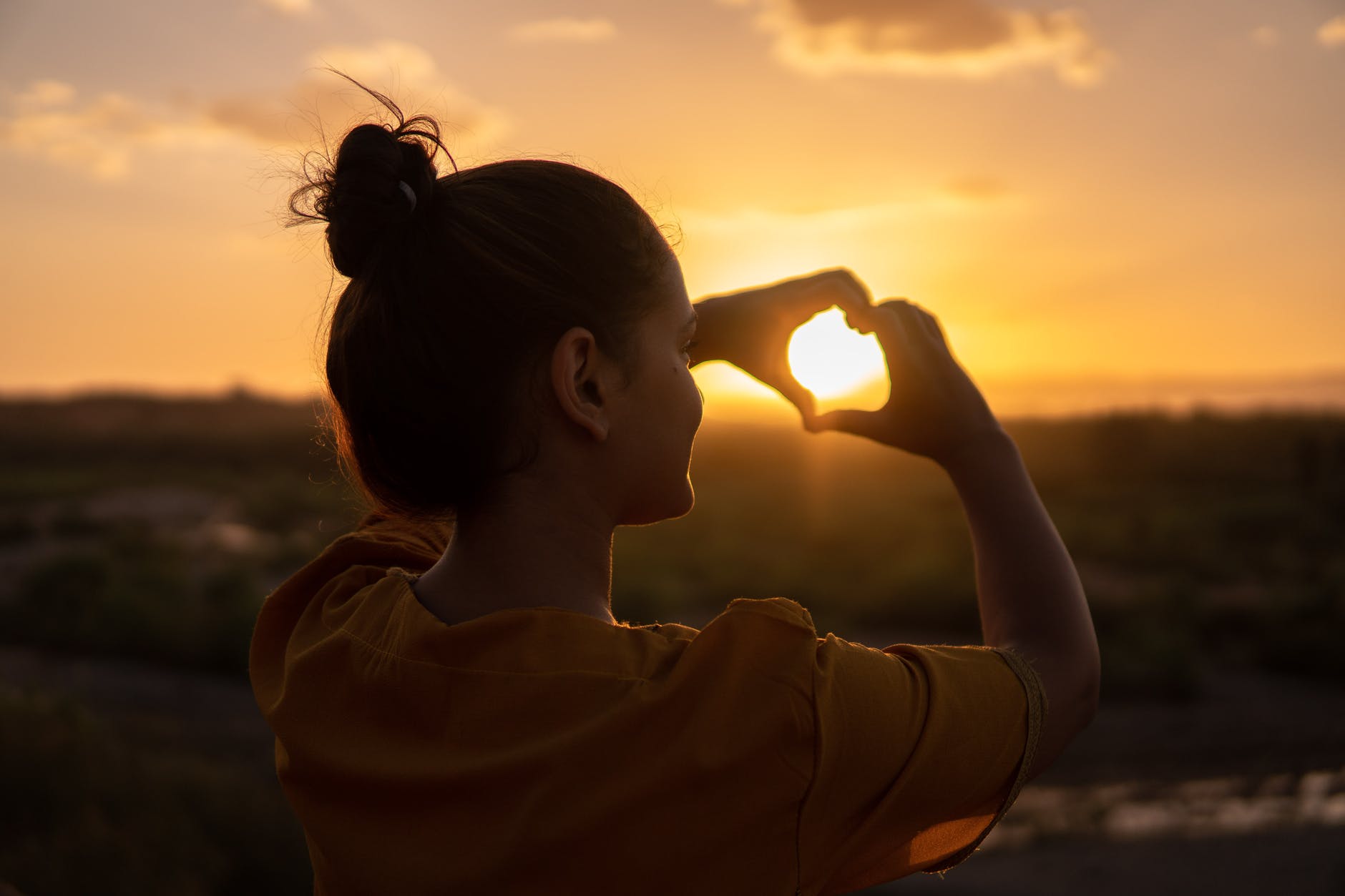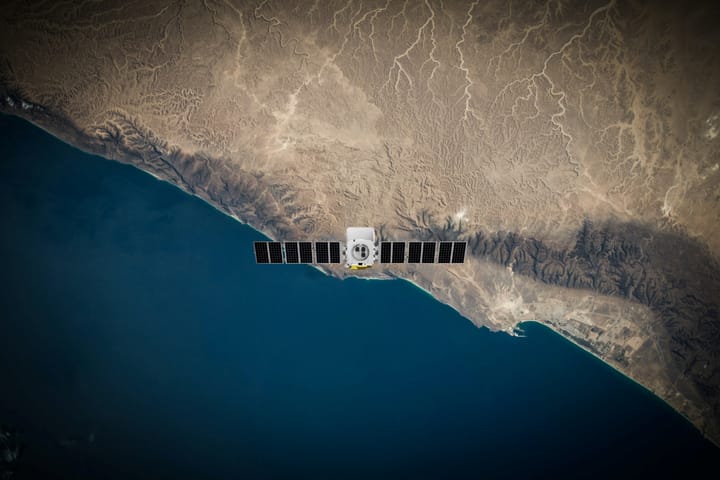What is eco-anxiety, and how can you deal with it?

A few minutes every morning is all you need.
Stay up to date on the world's Headlines and Human Stories. It's fun, it's factual, it's fluff-free.
While advances in mental health advocacy, treatment and policy over the past decade have been progressive, recently, new issues in the fight against mental illness continue to appear. According to the World Health Organization (WHO), “mental health conditions are increasing worldwide.”
These conditions can be attributed to many nuanced issues, like increased substance abuse, the stressors of the COVID-19 pandemic, human rights violations, global conflict and other factors. However, a concerning trend is how mental illnesses are spreading among younger populations, with the WHO stating that currently, “around 20% of the world’s children and adolescents have a mental health condition, with suicide the second leading cause of death among 15-29-year-olds.”
Apart from the rapid popularization of the internet and social media, one other significant shift that Gen Z and millennials have encountered is the prominence of the climate crisis. While carbon emissions have been affecting the climate for decades, it’s within the past 20 years that this science has come to the forefront of popular culture, and society has had to reckon with this issue.
And, within the last decade or so, the climate crisis has begun to affect many people’s mental health significantly; younger generations appear to be the most widely affected at this time. Because it seems like the world is headed steadfast into a cataclysmic crisis that we cannot reverse, an overarching sense of existential anxiety has begun to crop up and pose a serious mental health risk.
It’s called eco-anxiety, and, for many, it can be quite debilitating.
How does eco-anxiety manifest itself?

For nuanced insight into this phenomenon, we spoke with Dr. Ziv Cohen, a board-certified clinical and forensic psychiatrist, clinical assistant professor at Weill Cornell Medical College of Cornell University and founder and medical director of Principium Psychiatry in New York City. Dr. Cohen has seen his fair share of eco-anxiety.
“In my New York City-based practice, eco-anxiety amongst millennials is the rule rather than the exception,” Cohen says. “Depressed millennials often will cite climate change as a reason that it is fruitless to be motivated to better themselves: the world will become uninhabitable anyway. Often this type of thinking verges on the nihilistic and can worsen poor choices and hedonism, such as with drugs, alcohol, and sex.
“Other times it leads to general resignation and a lack of effort. As a psychiatrist, one has to treat the depression but also acknowledge that the concerns relate to the uncertain future of the environment and are not just a symptom of depression.”
While some people are more susceptible to mental illness due to personal trauma or genetic predispositions, eco-anxiety can contribute to what’s known as a “situational” mental illness. Eco-anxiety is a “chronic fear of environmental doom.” While treating the symptoms of mental illness may provide relief for the individual, this phenomenon will only continue as news of the climate crisis grows more dire.
Taking care of yourself is taking care of the planet

While being worried about climate change can be a driving force toward effecting change, eco-anxiety is somewhat counterintuitive to the climate movement.
In an essay by Susi Moser, teacher and research fellow at the Institute of Philosophy at the University of Vienna, she asserts: “Burnt-out people aren’t equipped to serve a burning planet … the well-being of our hearts and souls must be reestablished to their rightful place as relevant, essential.”
Climate-aware mental health support

Because eco-anxiety is a relatively unexplored mental health issue, finding a mental health professional who can offer valuable input and treatment is complicated, with many mental health professionals feeling unequipped to handle the increasing number of people worried about the state of the planet.
Formal education in psychology or psychiatry, especially from decades ago, may have missed this threat to mental health. Now, though, the American Psychiatric Association recognizes that climate change can be connected to challenges in mental health. They list strains on social relationships and PTSD among ways climate change can impact mental health.
Although many therapists feel “their training had not adequately prepared them to deal with the mental health impacts of the climate crisis,” the sub-specialties of eco-therapy and climate-aware therapy have experienced developments. Directories for climate-aware therapists have begun to crop up, making this kind of mental health support more accessible to those who need it. Additionally, climate anxiety support groups and discussion groups are leading the way in safe spaces to talk through these emotions with like-minded individuals.
Moreover, cognitive behavioral therapy (CBT) is a possible treatment for eco-anxiety and other mental illnesses aggravated by the climate crisis. CBT effectively addresses precarious patterns of thinking that may worsen a person’s emotional reaction to the climate crisis. Essentially, CBT is useful in mechanizing a shift in thinking.
Self-care for eco-anxiety

Self-care is essential for everyone. But for this particular issue, a face mask or soak in the tub may not be enough to quell feelings of extreme unease or distress. To manage these feelings constructively, we should consider other creative self-care methods which may be more effective.
The “All We Can Save” Project recommends different types of resources for “working with climate emotions.” Among these are climate-aware therapy, emotional methodologies, somatics, climate conversations and climate-specific mindfulness retreats. Those suffering from eco-anxiety must find the treatment method that works best for them.
Of course, climate change doesn’t just go away if we elect to ignore it. Staying educated and active in the climate movement is not counterintuitive to assuaging climate anxiety. Rather than promote ignorance, eco-anxiety resources promote open discussion and encourage each person to participate in advocacy in a way that is supportive to their mental health journey.
Have a tip or story? Get in touch with our reporters at tips@themilsource.com




Comments ()